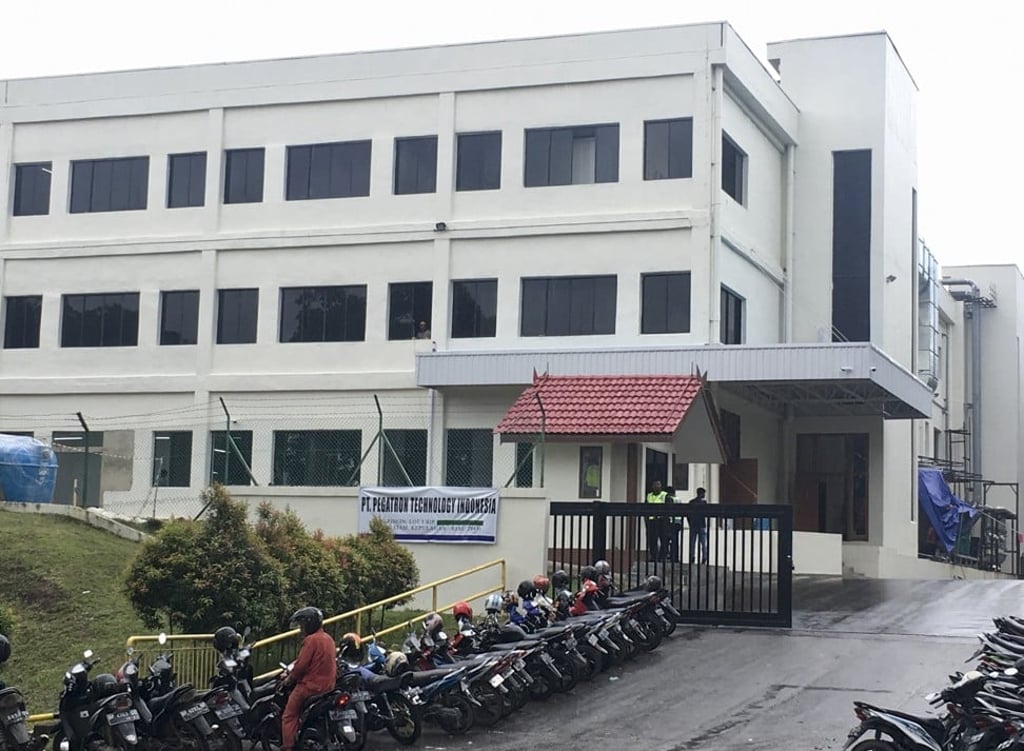Apple supplier sets up shop in Indonesia as island of Batam profits from US-China trade war
- Pegatron Corporation is one of many diversifying their manufacturing away from China, with a US$40 million project to make wireless chips and semiconductors
- Global supply chains have been disrupted by the ongoing tensions, which could ease this week as Xi Jinping and Donald Trump meet at the G20 summit in Japan

Within the coming months, Pegatron Corporation, one of Apple’s biggest suppliers, will open its first factory in Batam, Indonesia, as part of the Taiwanese electronics maker’s effort to insulate itself from the impact of the US-China trade war.
The US$40 million project, which will help diversify some of its manufacturing away from China, is expected to make wireless chips and semiconductors for routers across some 9,000 square metres (97,000 sq ft) of floor space in the 320 hectare (790 acre) Batamindo Industrial Park on the Indonesian island, which is the closest part of Indonesia to Singapore.
At the same time, Pegatron is also expanding its partnership with Indonesia’s electronics maker, PT Sat Nusapersada Tbk, with plans to lease more production floor space from the Indonesian company’s newest factory complex that will be completed at the end of this year, said PT Sat Nusapersada Tbk executives in Batam.

US President Trump has threatened to impose 25 per cent tariffs on an additional US$300 billion worth of Chinese goods – essentially all remaining imports into the US – on top of the US$250 billion already subject to 25 per cent duties.
“Any uncertainty will affect enterprises, not just Taiwanese ones. A production line requires many years to set up; enterprises need to consider the medium-term implications,” said Lu Jiun-wei, deputy researcher at the Taiwan Institute of Economic Research (TIER).
